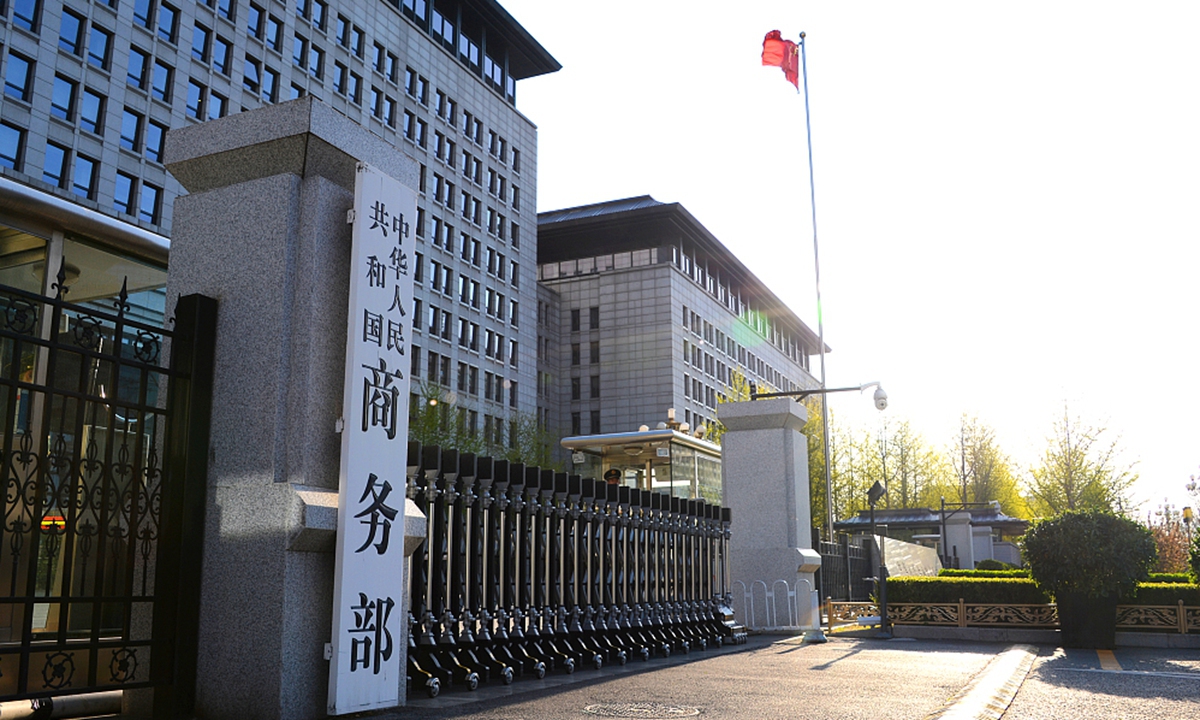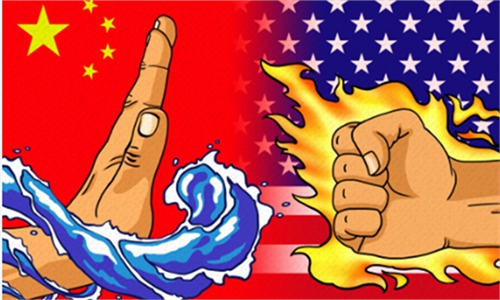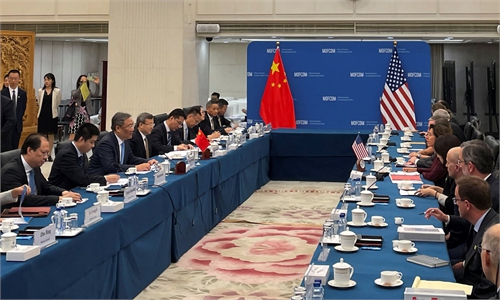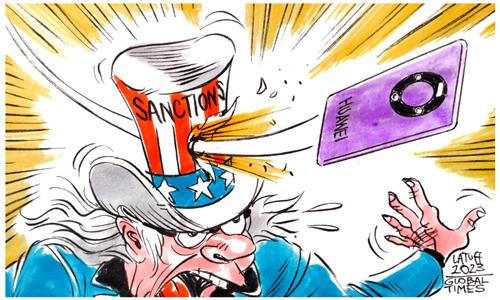China opposes US sanctions against Chinese entities with alleged involvement in Iran's devt of military aircraft: MOFCOM

The Ministry of Commerce Photo: VCG
China firmly opposes sanctions imposed by the US against certain Chinese entities and individuals with alleged involvement in Iran's development of drones and military aircraft, and it will take the necessary measures to resolutely defend its legitimate rights and interests, a spokesperson for China's Ministry of Commerce (MOFCOM) said on Tuesday.
Washington's abuse of unilateral sanctions and the practice of "long-arm jurisdiction" disrupts the international trade order and rules, obstructs normal economic and trade exchanges among nations, and harms the legitimate rights and interests of Chinese enterprises and individuals, the spokesperson said in a statement on the MOFCOM's website.
The US side should immediately cease its unjust suppression of Chinese enterprises and individuals, the spokesperson urged.
China will take the necessary measures to resolutely safeguard its legitimate rights and interests, the spokesperson said.
On September 19, the US Treasury Department said it would sanction seven individuals and four entities from Iran, Russia, China and Turkey on the grounds of so-called "connection" with Tehran's drone and military aircraft development.
The sanctions deny the people and firms access to any property or financial assets held in the US and prevent US companies and citizens from doing business with them, according to the department.
In March, the US sanctioned five Chinese companies and one individual on groundless allegations they had links with Iran.
The US' extension of jurisdiction to companies registered in China goes against the principles of international norms, Tu Xinquan, dean of the China Institute for WTO Studies at the University of International Business and Economics in Beijing, told the Global Times on Tuesday.
"It is unreasonable for a country to impose administrative measures on entities outside its own jurisdiction," Tu said.
In the latest case of long-arm jurisdiction by the US, the Biden administration on Monday imposed new trade restrictions on 11 Chinese, five Russian companies, five Pakistani companies, along with others located in Finland, Oman, Germany, and the United Arab Emirates, accusing some of supplying components to make drones linked with the Ukraine crisis, according to a document released by the US Commerce Department's Bureau of Industry and Security on Monday.
The trade blacklist will make it harder for US suppliers to ship technology to companies on the list.
Tu said that Washington's abuse of state power and technological hegemony to impose sanctions on Chinese companies and hinder their development is becoming increasingly normalized. Yet such sanctions and containment will not restrict the development of Chinese companies, as Huawei is a prime example.
Huawei launched new products ranging from smart screens, the MatePad and watches to the new Harmony OS NEXT system at a highly anticipated event in Shenzhen, South China's Guangdong Province on Monday, making a high-profile comeback to the market amid a reported chip breakthrough and years-long US sanctions.
"The sanctions will only enhance China's resolve and capabilities for technology self-reliance and innovation," Tu noted.
Global Times




